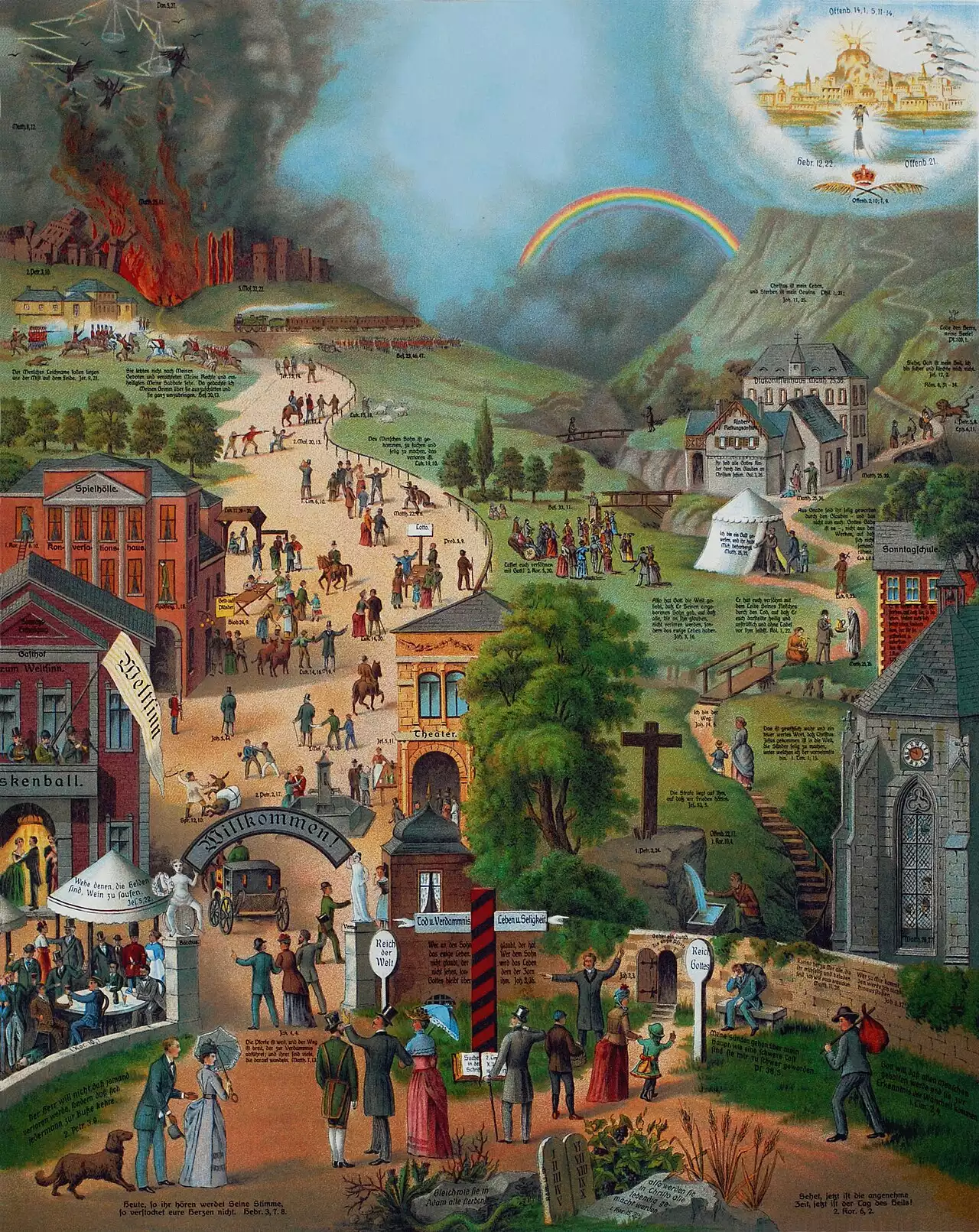
Spanning the years 1715 to 1880, a transformative movement known as Pietism emerged within Lutheran Germany, marking a pivotal shift in the religious consciousness of the era. This movement, rooted deeply in the Lutheran tradition, emphasized personal faith and spirituality over institutionalized religion, reshaping the religious landscape of its time.
The Emergence of Pietism in 18th Century Germany
The dawn of the 18th century in Lutheran Germany witnessed the birth of Pietism, a movement that would challenge and redefine traditional religious practices. Its inception is characterized by a strong emphasis on individual piety and a personal relationship with the divine, diverging from the established norms of Lutheran orthodoxy.
Pietism’s focus on individual spirituality heralded a new era in religious expression. It encouraged believers to seek a more intimate and emotional connection with God, rather than adhering strictly to formal rituals and dogmas. This approach fostered a sense of personal responsibility towards one’s faith, urging followers to reflect inwardly and cultivate a more profound spiritual life.
The rise of Pietism coincided with a period of significant social and cultural change in Germany. The movement’s emphasis on personal faith over religious institutions resonated with a society navigating the complexities of modernization and the Enlightenment. As a result, Pietism gained considerable traction, attracting followers from various social strata, who sought a more meaningful and personal religious experience.
At its core, Pietism advocated for a practical and experiential form of Christianity. It placed a high value on the practical application of religious beliefs in daily life, encouraging acts of charity, personal devotion, and moral living. This practical aspect of Pietism not only enriched the spiritual lives of its adherents but also had a tangible impact on the wider community.
The influence of Pietism extended beyond the confines of personal spirituality. It played a significant role in shaping educational reforms and social welfare initiatives. Pietists were instrumental in founding schools and institutions that focused on holistic education, intertwining academic knowledge with religious and ethical instruction.
The Widespread Influence and Legacy of Pietism
As Pietism matured throughout the 18th and 19th centuries, its impact extended far beyond the boundaries of religious practices, deeply influencing cultural and intellectual spheres in Lutheran Germany. This period marked the flowering of Pietist thought, witnessing its integration into various aspects of German life.
Pietism’s emphasis on personal devotion and moral rigor contributed significantly to the formation of a new ethical consciousness within society. Its proponents advocated for a life led by Christian virtues, which in turn fostered a culture of integrity and moral responsibility. This shift in ethical perspective had profound implications, influencing societal norms and behaviors.
Furthermore, Pietism played a crucial role in the development of German literature and philosophy. Its introspective nature and focus on personal experience became a source of inspiration for many writers and thinkers, shaping the themes and styles of German literary and philosophical works. The movement’s influence is evident in the writings of notable figures who grappled with issues of faith, morality, and the human condition.
The legacy of Pietism also extended to the realm of music. The period saw the creation of numerous hymns and musical compositions that reflected Pietist themes. These works not only enriched the liturgical repertoire but also resonated with the general populace, reinforcing the movement’s impact on popular culture.
As Pietism waned towards the end of the 19th century, its enduring influence remained evident in the continued emphasis on personal faith and spirituality within Christian communities. The movement had indelibly altered the religious landscape, leaving a legacy that continued to shape spiritual practices and theological thought.
In conclusion, the growth and influence of Pietism from 1715 to 1880 in Lutheran Germany represent a significant chapter in religious history. Its emphasis on personal faith, moral living, and practical Christianity had far-reaching effects, permeating cultural, intellectual, and social spheres. The legacy of Pietism, with its focus on a personal connection with the divine and ethical living, continues to resonate, underscoring its enduring significance in the tapestry of religious thought and practice.
References
- Friesen, Abraham. Pietism in Germany and North America 1680-1820. Ashgate Publishing, 2009.
- Google Books. Accessed 14 January 2024.
- Google Books. Accessed 14 January 2024.
- Hart, D.G. The Pietist Impulse in Christianity. Wipf and Stock Publishers, 2012.
- JSTOR. Accessed 14 January 2024.
- Lehmann, Hartmut. Pietism and the Making of Eighteenth-Century Prussia. Cambridge University Press, 1995.
- Stoeffler, F. Ernest. The Rise of Evangelical Pietism. Brill, 1971.
- Wallace, Peter. German Pietism and the Problem of Conversion. Penn State University Press, 2018.
